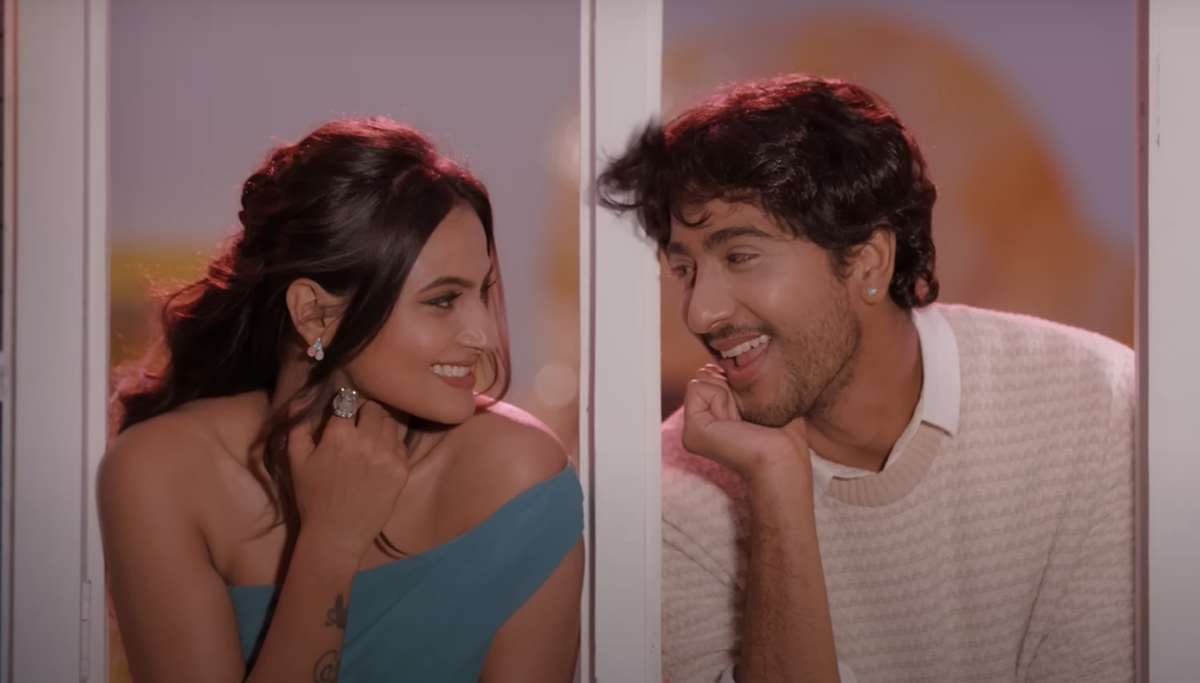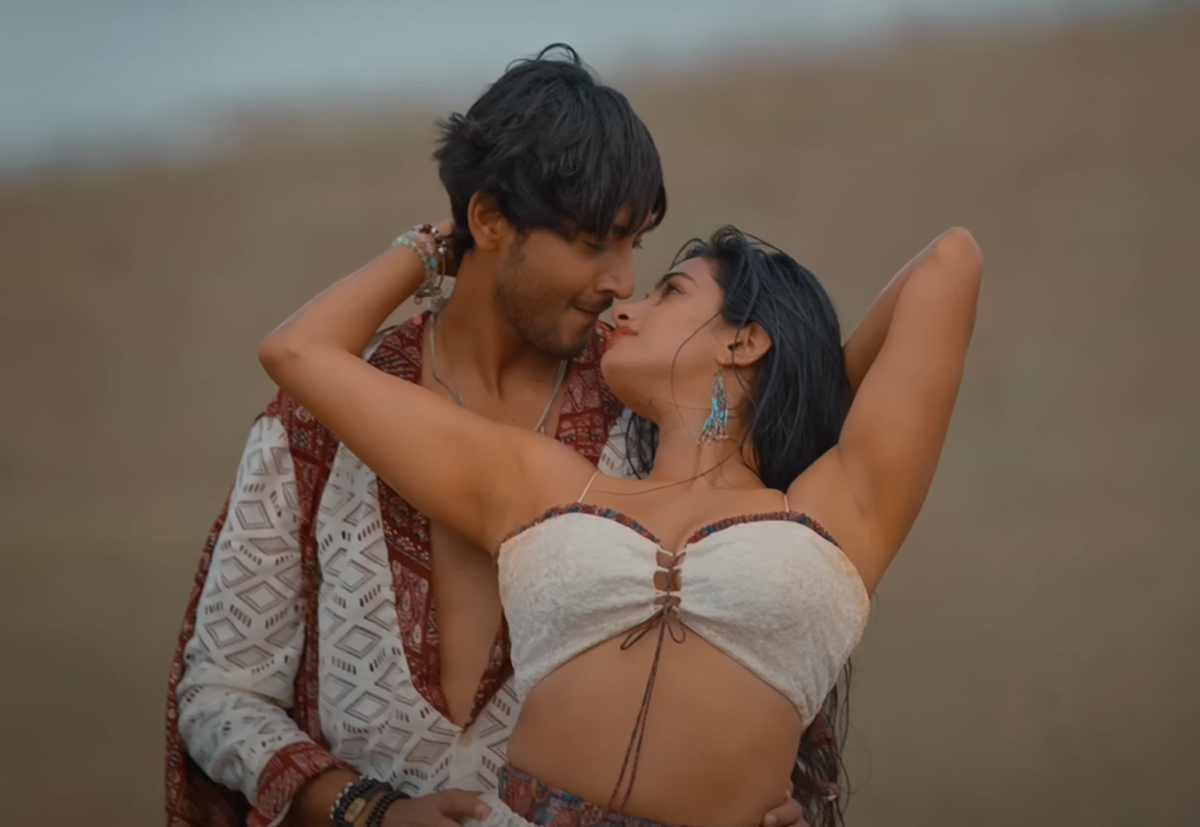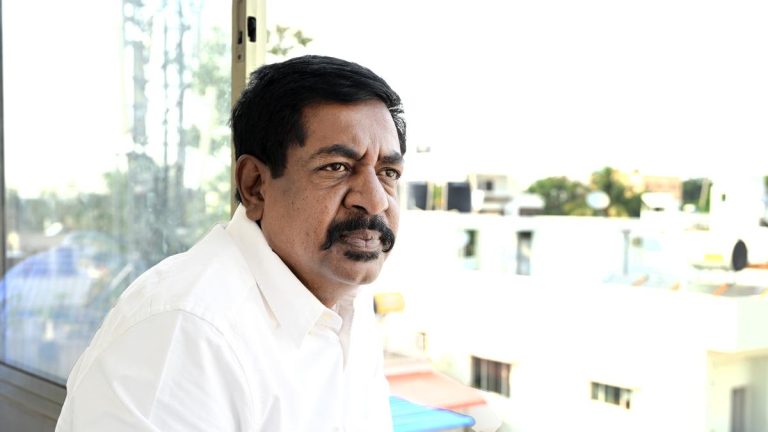
Filmmaker Yogaraj Bhat.
| Photo Credit: Ravichandran N/X
In 2006, Yogaraj Bhat brought the crowd back to theatres with his refreshing Mungaru Male (starring Ganesh and Pooja Gandhi), which broke several box office records on its way to a 1-year run in theatres. Bhat and his friend Suri (Duniya) were refreshing additions to an industry struggling with a creative rut.
Close to two decades later, Bhat is striving hard to impress the changing audience. His latest, Manada Kadalu, is relevant to the current generation he says. The movie, starring Sumukha, Anjali Anish, and Rashika Shetty, hit the screens on March 28, 2025.

“It’s about a young MBBS student who faces pressure from parents and society to succeed, so much so that he begins to start hating the system,” he says about the film. The director opens up on the challenges of reinventing himself and keeping the audience’s faith in him intact.
Excerpts from the conversation:
Isn’t it unfair that every film of yours is compared with ‘Mungaru Male’?
Whatever I do, it’s always compared with Mungaru Male. I have even met people who have told me I haven’t made a movie better than that. So, audiences are tricky, and I fear them a lot. It’s good not to take them for granted. If I have a condescending attitude towards them, I will lose them permanently. They will start trusting films made in other languages. It’s akin to choosing restaurant food because you don’t like what’s cooked at home.

Have you found a way to handle expectations?
Imagine one film having the impact of six blockbuster movies. That’s what ‘Mungaru Male’ did to the industry. If you reach the peak early in your career, your graph must go beyond that. In a way, it’s good to know that people wait for your movies. At the same time, I can’t stop making films fearing expectations. If I had to escape this scenario, I should have quit filmmaking forever and started a restaurant.

Sumukha and Rashika Shetty in ‘Manada Kadalu’.
| Photo Credit:
DBeatsMusicWorld/YouTube
You have been around for two decades in the industry. When you see youngsters succeed, do you feel the pressure to match up to them?
People are lenient with newcomers, and that’s justified. They get accepted with grace marks for their attempts. My minute blunders get highlighted and criticised because I am very experienced. When a young filmmaker succeeds, I receive phone calls from critics and industry members asking me to feel inspired by them. My works get compared with theirs. That said, I have rallied behind several gifted rookie directors because I was also once a youngster with great energy to make a difference in the industry.
You made two back-to-back entertainers (‘Mungaru Male’ and ‘Gaalipata’) without a definite plot structure. Were you at your best as a writer back then?
I can never call myself a perfect writer, but I think I have cracked poetry/lyric writing. While writing a song, I wrestle with my thoughts and bring out my maximum creativity to produce seven to eight lines. Many things are unsaid in a song, yet people must understand the lines. A song cannot be too academic. I think I have learnt to balance these two aspects. However, I am still learning to write the perfect script. There are hundreds of books on writing a screenplay. When do you introduce a conflict? Should the protagonist always have a purpose? Why should there be a love story in commercial movies? I keep thinking about these aspects of storytelling. I get questioned about why I don’t stick to the so-called traditional grammar of a film’s structure. I want to attempt a film on the unexplored emotions of human beings.
ALSO READ:Man with the golden touch
Do you still write on sets? Directors like Vetrimaaran in Tamil adapts to the location and actors and writes dialogues on sets…
I started writing dialogues on sets after watching Suri do it for Junglee (2009). The film won the State Award for Best Screenplay. When I saw the movie on the editing table, I was shocked to see how effective the dialogues were. I wrote Mungaru Male, Pancharangi, Paramathma, andDrama on sets. I had a basic one-line story for those films. In one way, it’s effective because you sometimes get your best when you are spontaneous. I stopped this habit because the team suffered a lot. It’s torture for the actors to wait for the dialogues as they are ready to enact a scene. I had to respect their time and energy. A slight modification to the dialogues is okay, but I have stopped taking the risk of writing the entire movie on the sets.

Sumukha and Anjali Anish in ‘Manada Kadalu’.
| Photo Credit:
DBeatsMusicWorld/YouTube
The music in your song continues to make waves. Can you ever do a film without songs?
I keep thinking about a film without a song. However, I have a special connection with people as a lyricist. They expect a lot from my songs. Abandoning music in movies will be like cutting a strong link with the audience. Yet, I might use songs as a promotional tool and make a movie without any songs.

Over the years, the Puneeth Rajkumar-starrer ‘Paramathma’ has been your most talked-about movie. Were you disappointed when it didn’t do well in theatres?
I wish it had done well when it was released. So many scenes from the film are shared today on social media. Recently, we visited a medical college to promote Manada Kadalu. After interacting with the students, I was smoking outside the college when I saw a student walking past me. She looked disturbed for some reason. When she saw me, she smiled as she said ‘Paramathma‘. That’s the impact of the movie. For some, whatever films I do, Paramathma will remain their favourite. Perhaps, when the movie was released, people didn’t have the mindset to take the film’s subject. Some films will eventually find their audience. Paramathma has achieved that.
Published – April 08, 2025 10:51 am IST

